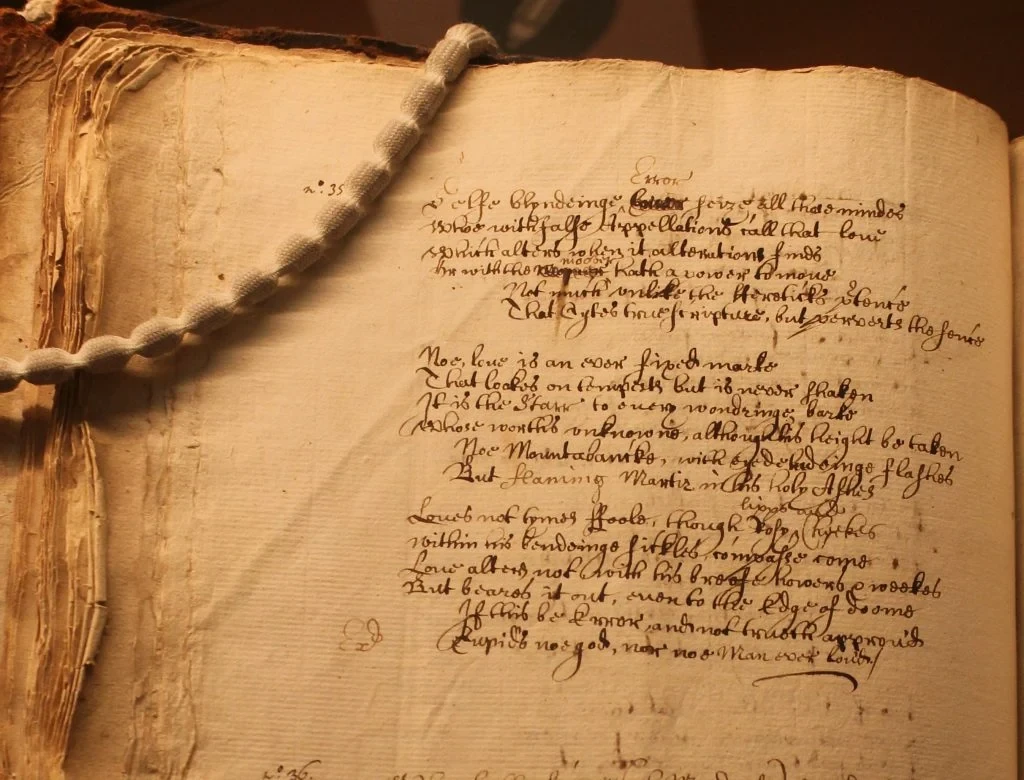Oxford scholar uncovers hidden Shakespeare sonnet with political twist
 The uncovered copy of Shakespeare’s Sonnet 116. (Photo via Bodleian Libraries)
The uncovered copy of Shakespeare’s Sonnet 116. (Photo via Bodleian Libraries)
A groundbreaking discovery by Leah Veronese from the University of Oxford has unveiled a rare manuscript copy of Shakespeare’s famous Sonnet 116, hidden away in a 17th-century poetry collection. The manuscript, found among the papers of Elias Ashmole (1617–1692), the founder of the Ashmolean Museum, is only the second known copy of the sonnet.
The find is particularly significant, as it offers new insights into Shakespeare’s early reception and his influence during the politically charged English Civil War.
Uncovering Shakespeare in unexpected places
Veronese, who is pursuing her DPhil at Oxford, stumbled upon this remarkable discovery while conducting research at the Bodleian Library. The manuscript is part of a “miscellany”—a handwritten collection of poems by various authors on a range of subjects. These miscellanies were commonly used to circulate early modern poetry, and the manuscript even contains original poetry by Ashmole himself.
“I immediately noticed an unusual version of Sonnet 116,” Veronese explained. “When I consulted the 19th-century catalogue, the poem was described as ‘on constancy in love,’ but it was not attributed to Shakespeare. I suspect the combination of an additional first line and the lack of Shakespeare’s name in the catalogue led to this copy being overlooked for so long.”
A political twist on Shakespeare’s sonnet
What makes this discovery even more fascinating is the adaptation of Shakespeare’s iconic sonnet. In this version, the poem has been set to music by composer Henry Lawes and includes seven additional lines, as well as changes to the opening and final couplets. The new version, which was likely intended for performance, reflects the political atmosphere of the English Civil War.
The original opening lines:
“Let me not to the marriage of true minds
Admit impediments; love is not love
Which alters when it alteration finds”
Are altered to:
“Self-blinding error seize all those minds
Who with false appellations call that love
Which alters when it alterations finds”
The discovery provides a unique glimpse into how Shakespeare’s work was reinterpreted during the English Civil War, not just as romantic poetry, but as a tool for political expression. Musicians like Henry Lawes, who set the poem to music, often survived by performing secretly in private homes, further indicating how the work was adapted to fit the political needs of the time.
Shakespeare’s enduring influence in a time of crisis
Professor Emma Smith, a leading expert on Shakespeare at the University of Oxford, expressed excitement over the discovery. “This find is a reminder that even after centuries of searching for evidence about Shakespeare’s early reception, the archives still hold surprises. This version of Sonnet 116 wasn’t widely circulated in Shakespeare’s own time, but it is now one of his most famous sonnets, and this new discovery sheds light on how it was understood within the context of Royalist politics.”
Veronese’s discovery reveals how Shakespeare’s words were reshaped and repurposed during one of the most politically charged periods in English history, offering new insights into both the poet’s influence and the tumultuous nature of the Civil War.



